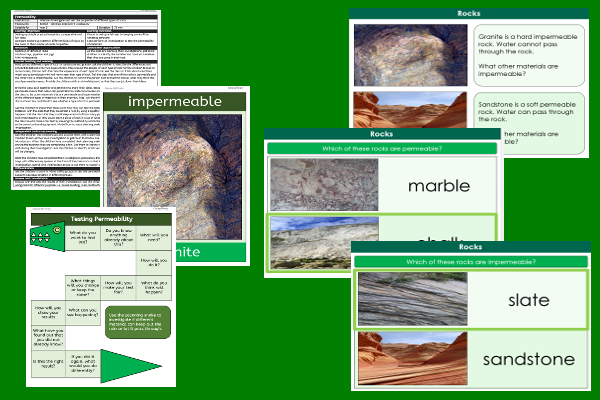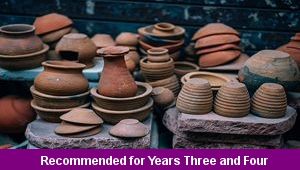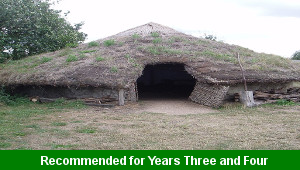Home > Key Stage Two > Science > Year Three Planning > Rocks
Lesson Two – Permeability

This science teaching pack for Key Stage Two gets the children to investigate and test the properties of different types of rocks according to their matching material property for permeability.
The class can explain and model how to conduct a fair test by keeping some of the variables in the investigation constant to identify whether a material is permeable to impermeable.
Download this teaching pack including a lesson plan, classroom activities and an interactive presentation to investigate and test the properties of different types of rocks according to their matching material property for permeability
Activities in this teaching pack include display posters to identify the properties of different materials in relation to their permeability and a template to plan and conduct an investigation to test the permeability of different types of rocks.
The interactive presentation gets the children to explore how to test the properties of different types of rocks according to their permeability.
This lesson is part of a science scheme of work to get the children to identify, compare and classify different types of rocks, soils and fossils according to their matching material properties for appearance, texture and substance. There are teaching activities for shared learning, differentiated worksheets to support independent learning and interactive presentations to introduce concepts and key skills.
-

Cities, Towns and Villages
Research and present the history of a range of different buildings and people that are part of the local community using a school exhibition
-

Recycling
Research and present some of the benefits and disadvantages that can be produced when recycling different materials at home and in school
-

Viking Pots
Develop and refine a range of different art and design techniques when working with clay to make pots that represent Viking culture and traditions
-

Bronze Age
Research and illustrate how life in Britain developed and changed during the Bronze Age including the growth of communities and trade
